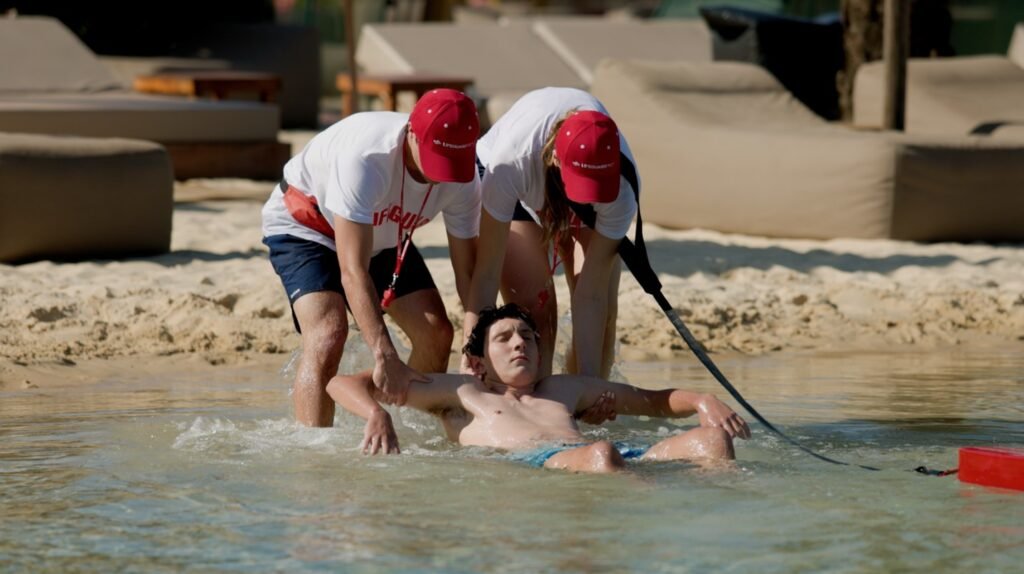Lifeguards are the unsung legends of water safety. Whether at a beach, pool, or water park, lifeguards play a critical role in forestalling accidents and saving lives. Be that as it may, becoming a lifeguard requires something other than the capacity to swim well. Lifeguard training is a broad process that furnishes people with the skills and information important to deal with emergencies, ensuring the safety of all who partake in the water.
This article explores the significance of lifeguard training, what it includes, and why it’s critical for keeping up with safe aquatic environments.
Table of Contents
The Significance of Lifeguard Training
Lifeguard training is essential since it plans people to act rapidly and successfully in high-pressure circumstances. A lifeguard’s primary responsibility is to forestall suffocating, yet their obligations reach out a long ways past watching out for swimmers. Lifeguards should be ready to answer different emergencies, from spinal injuries and heart failure to managing hazardous atmospheric conditions.
Appropriate training ensures that lifeguards can perform rescues, direct first aid, and give CPR when vital. It additionally teaches them to keep up with vigilance, survey dangers, and pursue split-subsequent options that can be the difference among life and death. Without exhaustive training, a lifeguard could miss the mark on confidence or capacity to answer properly in critical moments, prompting shocking outcomes.
What Does Lifeguard Training Include?
These training programs are complete and covering a great many skills to make you able to handle all types of water emergencies. Members learn the physical techniques required for rescues as well as the mental and close to home flexibility required for the job. Here is a breakdown of what lifeguard training normally includes:
1. Water Rescue Techniques: Lifeguards should dominate different rescue techniques, including surface jumps, submerged swims, and different sorts of conveys to carry a casualty to safety. They additionally learn how to deal with various casualties and perform rescues in testing conditions, like strong flows or waves.
2. First Aid and CPR: Lifeguards are trained to regulate fundamental first aid, including treating cuts, injuries, and breaks. CPR (Cardiopulmonary Resuscitation) is an essential skill that all lifeguards should dominate, as it can save lives in instances of heart failure or near-suffocating occurrences.
3. Surveillance and Prevention: One of the most critical parts of lifeguarding is forestalling accidents before they happen. Training programs stress the significance of steady surveillance, perceiving indications of misery, and enforcing safety rules to limit gambles.
4. Emergency Response: Lifeguards are shown how to manage emergency circumstances, from surveying the seriousness of the occurrence to speaking with emergency administrations. They likewise learn how to deal with swarm control and give consolation to onlookers.
5. Physical Fitness: Lifeguarding is physically requesting, and training programs incorporate thorough fitness assessments. Members should exhibit their swimming capability, endurance, and strength to ensure they can perform rescues under physically burdening conditions.
The Benefits of Lifeguard Training Past the Pool
While ALA lifeguard training and certification is basically aimed at getting ready people for aquatic environments, the benefits of this training stretch out a long ways past the water. Lifeguards develop life skills that are significant in any setting, including leadership, teamwork, and the capacity to try to avoid panicking under tension. These skills are highly adaptable and can enhance one’s personal and professional life.
Furthermore, this training ingrains a strong feeling of obligation and community administration. Lifeguards comprehend the significance of their role in ensuring the safety of others, which frequently converts into an elevated familiarity with safety in different everyday issues. This feeling of obligation and the confidence acquired from their training make lifeguards significant supporters of society.
Finding the Right Lifeguard Training near me
For those keen on becoming a lifeguard, finding the right training program is essential. Looking for “lifeguard training near me” can assist you with finding neighborhood courses that meet your necessities. When choosing a program, it’s vital to consider the educational plan, the experience of the teachers, and the certifications gave upon finishing.
The best training programs will offer a reasonable blend of theoretical information and practical experience. Search for programs that remember hands-for training in certifiable settings, as this will better set you up for the difficulties of lifeguarding. Furthermore, ensure that the program gives certifications that are perceived and regarded inside the business.
Final Word
Lifeguard training isn’t only an essential for those hoping to work at a pool or beach; an imperative process furnishes people with life-saving skills. The significance of this training couldn’t possibly be more significant, as it ensures that lifeguards are ready to deal with emergencies and forestall tragedies.
If you’re considering becoming a lifeguard, the American Lifeguard Association offers fantastic training programs that can assist you with developing the vital skills. Whether you’re not kidding “lifeguard training near me” or hoping to improve your qualifications, putting resources into quality training won’t just make you a skillful lifeguard yet in addition an additional sure and capable person.

